Projects
Current
-
Osprey Wind Turbine
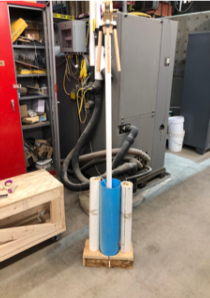
The goal of this project is to develop a prototype of a new design of wind turbine that can fold in on itself and store itself inside an underground compartment. This kind of dynamic wind turbine could be used in places where they don't want the wind turbines exposed all the time, like only operating the wind turbines at night time. At the time the semester ended, our model had some functional motion mechanisms. None of the motion mechanisms have been motorized as of yet.
-
Water Quality
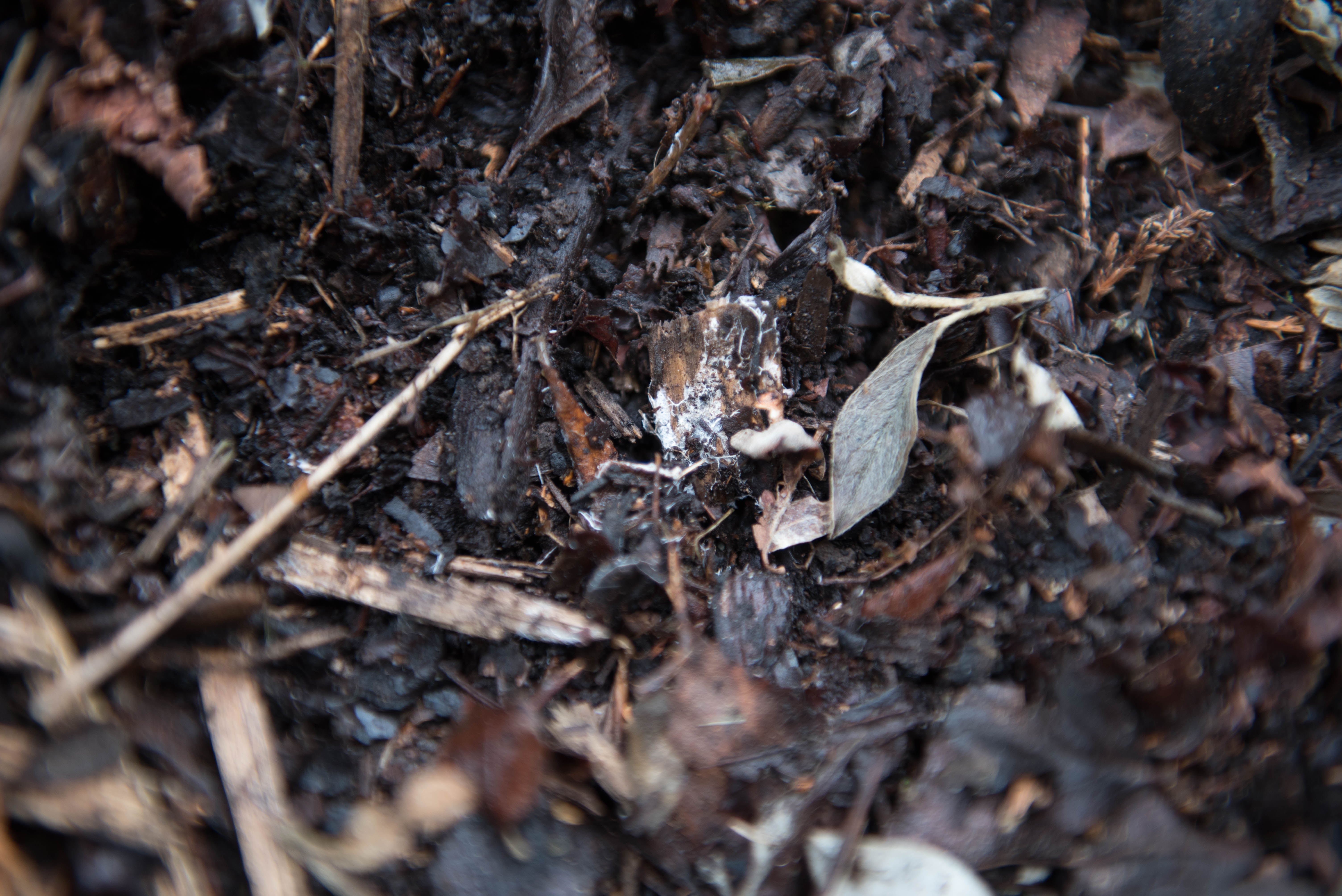
The Water Quality sub-team is researching waste separation processes, with a focus on waste-composting toilets and water quality in the Ithaca area. Toilets account for nearly a quarter of domestic wastewater, so improving the sustainability of this waste stream would have major impacts. Through outreach with the local community, the team aims to see where such technologies may be feasible, and conduct research to advance their usage.
-
Food Waste on Campus
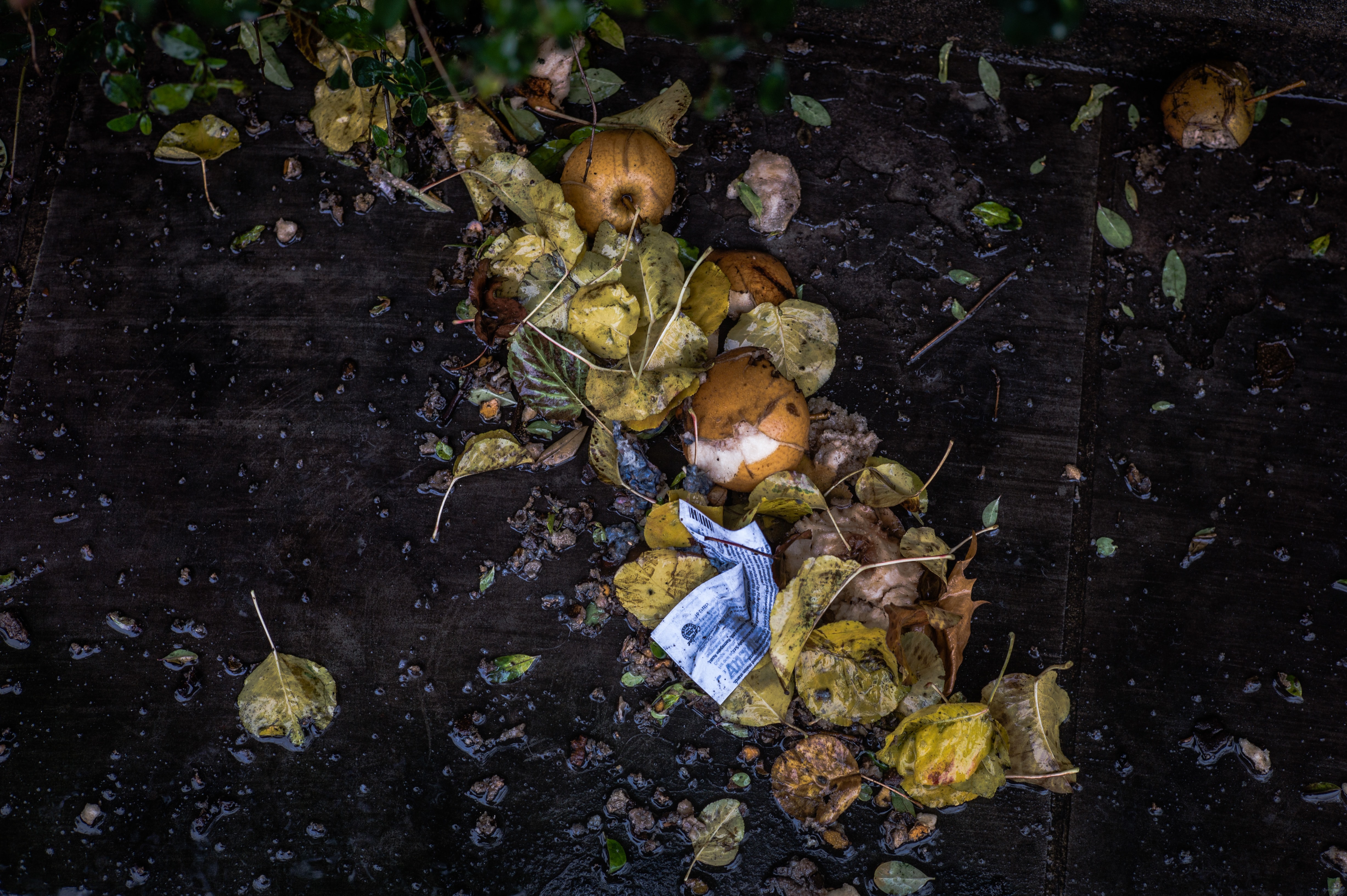
The Food Waste sub-team is working to visualize the extent of food waste on campus in Cornell dining halls. The team is working to build a data-driven website to visualize the data collected, using HTML, JavaScript, Java, SVG, and other languages and platforms to bring awareness to the issue and hopefully spur improvement.
-
Software Development

The Software development sub-team is working on a full-stack development project with the end goal of creating a sustainability-centered app that can be used by the Cornell community. Currently, the team is working on their user interface design and integrating their frontend and backend. Members applied their CS background, expanding their skills in Python, Java, and HTML to other languages and platforms, including Figma, React, and Django, among others.
-
Campus Energy Consumption Modeling
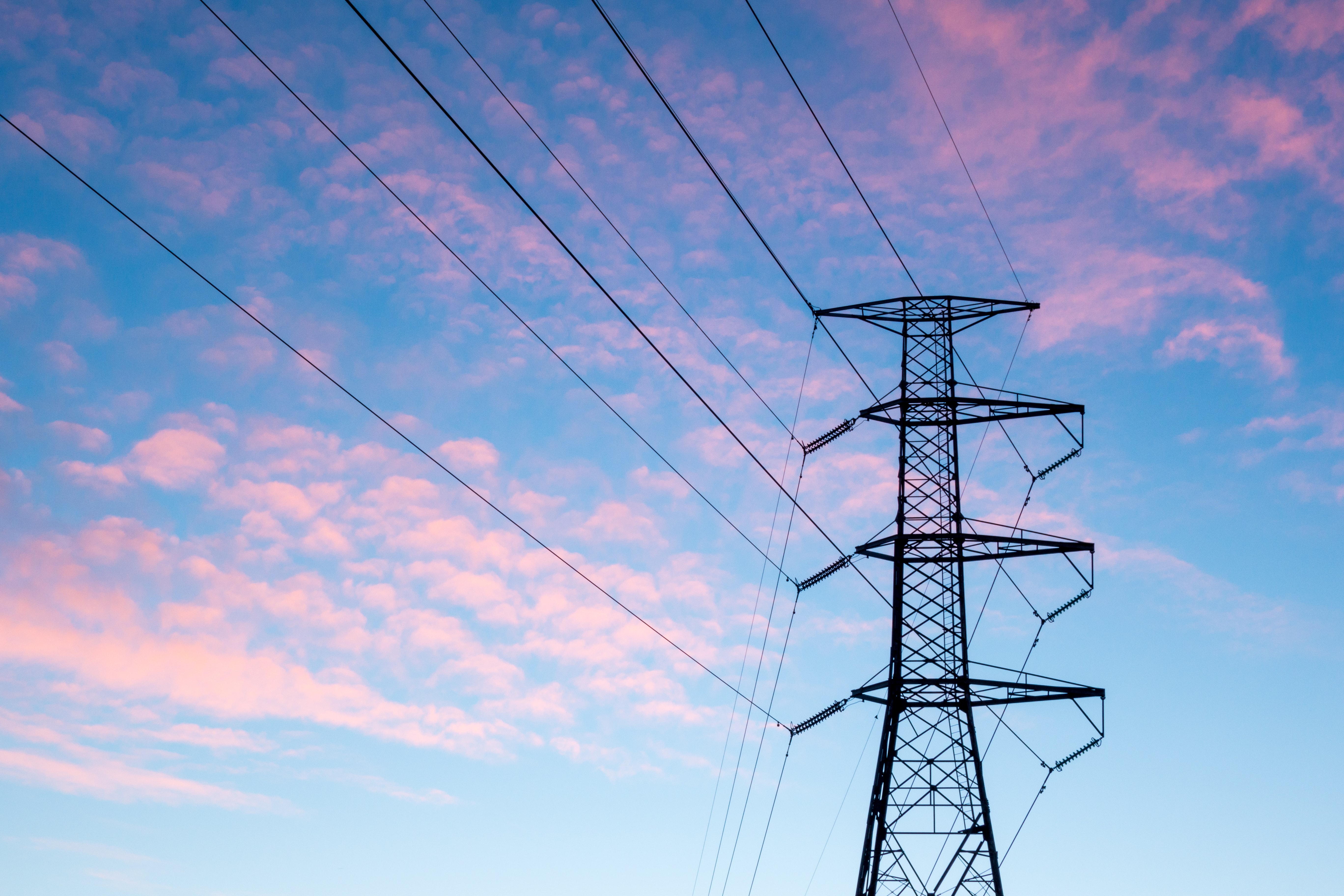
The Campus Energy Consumption Modeling team is working with the Cornell Office of Sustainability to visualize data concerning energy consumption on Campus. The dashboard developed can be used to display energy consumption from different buildings on campus over time. The team hopes to continue building their relationship with the Office of Sustainability, as well as improve the design of their data visualization and presentation.
-
Sustainable Living Outreach

The Sustainable Living Outreach team has been focusing on outreach concerning what individuals can do to live more sustainable lives and make an impact concerning climate change. The team hopes to utilize the networks that ESW has developed within the Cornell community to deliver engaging sustainability-related content to a college audience.
Completed
-
CO2 Emissions Reduction

The goal of this project is to analyze carbon dioxide emission trends across Ithaca and propose technological changes that could lower the emissions. We will start with a data set for a group of Ithaca houses given to us by the Sustainability Coordinator of Ithaca. From there, we will determine what factors are causing the most CO2 emissions before proposing our changes. After deciding on necessary changes, we will assist in designing any technology to help implement the changes. If the changes are successful on the small scale, we will work to incorporate them into more Ithaca households.
-
Hydroturbine

The hydroturbine subteam is working to create a pico hydro system that will be used to power lighting along a trail in Cascadilla Creek gorge. This system is a run-of-the-river style design, meaning that it doesn't require a dam or significantly modifies the flow of the creek. The team spent Fall 2018 working on establishing the basics of this project, such as where in the creek the system should be located, and how the electricity would be generated. Spring 2019 was spent securing permissions from the appropriate authorities, designing the system, and building a quarter-scale model. We hope to have the system built and installed in the creek by the end of next spring, with the immediate goal of solving electricity distribution problems and creating a materials list for the full-scale system.
-
Build Day
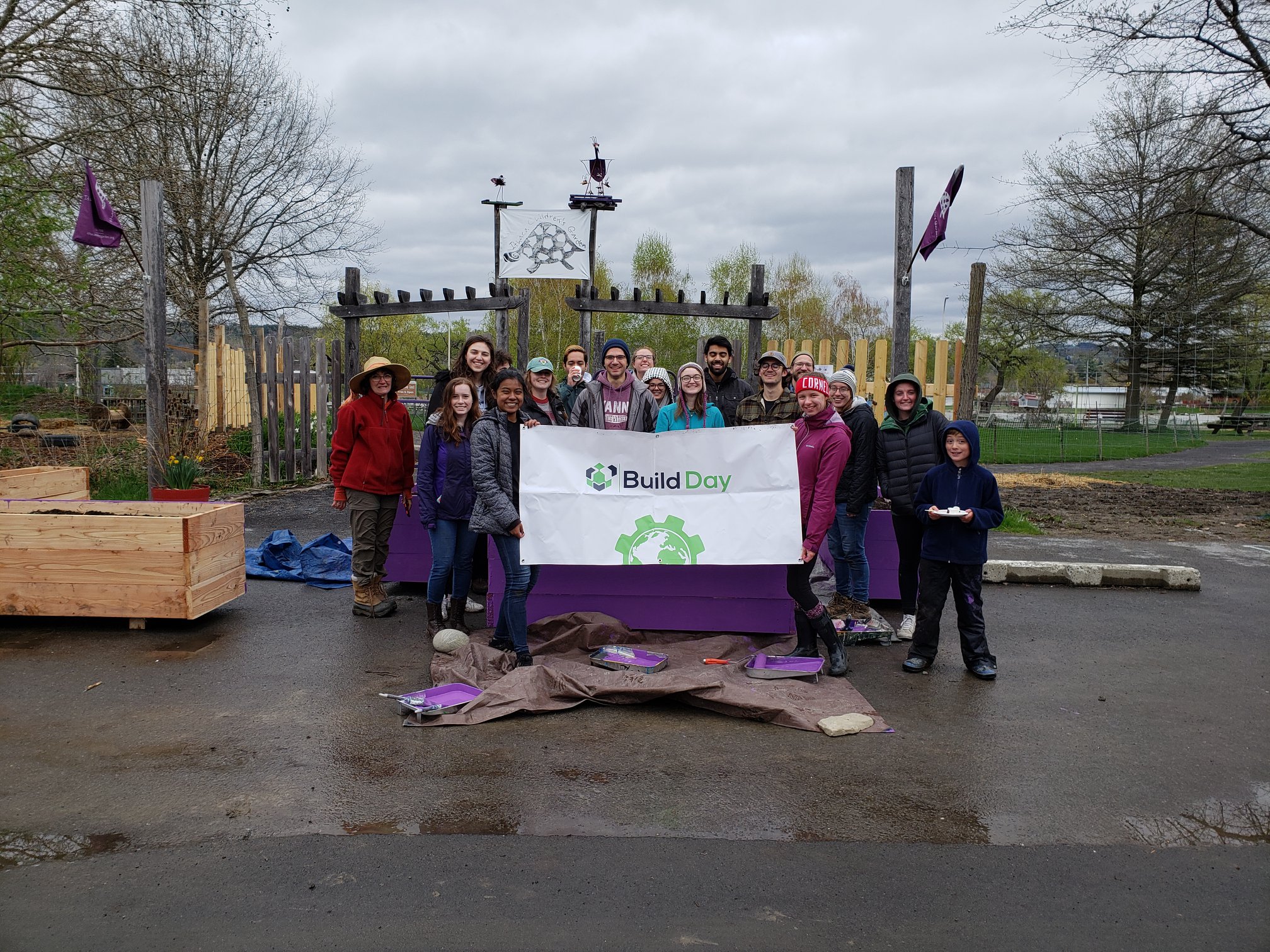
This year, ESW-HQ piloted their Build Day program, which focuses on ESW chapters partnering with local organizations to bring the community together for a one-day build. As a part of the pilot program this year, the ESW-Cornell Build Day Team worked with Ithaca Children's Garden to host the first ever ESW Build Day in Ithaca on April 27th! The Build Day primarily consisted of building ten planters for the garden. Five of these planters, brightly painted purple, now reside at the main entrance of Ithaca Children's Garden to welcome visitors into the garden. The other five planters, brightly painted orange, now reside between the Teen Urban Farmers Farm Stand Patio and the parking lot. During the Build Day, there were also engineering demonstrations by other ESW-Cornell sub- teams to encourage the community to learn more about renewable energy. The overarching goal with our Build Day was to bring the Ithaca community together with a one-day build to promote community sustainability. The goal was achieved, since planning Build Day over the last year has allowed our team to learn how to work with a community partner effectively and implement an engineering design.
-
ESWind

This project was a proof of concept for a small-scale vertical-axis wind turbine. After years of design iterations, the electrical circuitry was completed and can charge a battery. The design of the turbine was altered to maximize surface area perpendicular to the wind, and with this improvement, the turbine was able to spin in moderate to heavy wind conditions. Eventually the turbine will find a home on a rooftop on campus, where it will ideally act as a charging station.
-
Ithaca CarShare Project
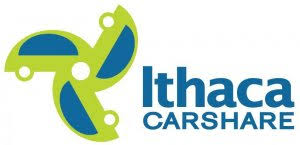
This project supports Ithaca Carshare which is a local non-profit organization that reduces the amount of emissions produced by cards by promoting carsharing. By creating a mobile application for Ithaca Carshare, the organization may have more users in the program and allows for more efficient use of the cars during booking. The community benefits from increased access to transportation while saving the earth environmentally and saving money economically. The main deliverable will be a reminder app for users of the Ithaca Carshare community to know details about their current booking of a car (ex. start and end time of booking, cost of booking). This reminder will take place via email as well as in phone notifications.
-
Compost-Sourced Heat

ESW's Compost-Sourced Heat team aims to find the most effective way to extract heat energy from Cornell University's food waste. The team will start with research and small-scale testing to determine the optimal system. Then, the Compost-Sourced Heat team plans to construct a large composting structure that will utilize food waste to produce significant amounts of heat energy for Cornell's Campus.